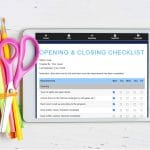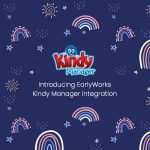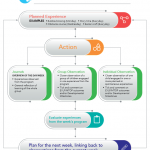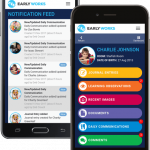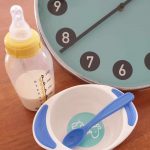Supporting children in self regulation of behaviour
One of the main tasks of every educator, is supporting children in self regulation of behaviour (QA 5.2.2). We do this when we help children resolve conflicts, take turns using equipment, share toys, or play in the company of others.
Sometimes children require extra support to develop these self regulation skills and to respond appropriately to the behaviour of others. In these instances, we may work with families to develop behaviour plans.
A question often asked by educators using EarlyWorks is how and where should behaviour plans be recorded? And how do behaviour plans fit with the planning cycle?
Behaviour plans can easily be documented in EarlyWorks.
- The first step is collecting and presenting evidence. This can be done with an observation. In the narrative, a summary of the evidence can be recorded. This might include notes from conversations with families; notes from educator observations and conversations; and importantly, the thoughts of the child. EYLF outcomes that are relevant and being worked towards can be ticked and commented upon, images attached, voice of the child recorded, and links to the National Quality Standards made via the QIP evidence tab.
- The information collected in the Observation would then be used to develop a behaviour plan. This behaviour plan would be recorded as part of an experience, and then linked back to the observation. If the behaviour plan has been developed as a Word document, it can be cut and pasted into the Narrative box of the Experience, and if it has been saved as a PDF, attached as a Resource to the experience. The preceding observation would be the evidence collection observation, and educators may also decide to select non-program related options of ‘educator initiated’ and ‘parent initiated’. This evidences the collaborative nature of the behaviour plan.
- Over time, observations of the child can be linked to the Behaviour Plan experience, and educators can also use the ‘evaluation of experience’ box to evaluate the effectiveness of the behaviour plan in supporting the child in modifying behaviour.
- Then when it’s time to re-assess and update the behaviour plan, it can be documented as part of a new experience and linked back to all relevant observations.
Now the planning cycle is clearly documented in EarlyWorks😊
Educators also have evidence of a number of National Quality Standards:
- 1.3.1 Assessment and the planning cycle,
- 1.3.2 Critical Reflection,
- 1.3.3 Information for families,
- 5.2.2 Self regulation,
- 6.1 Supportive relationships with families, and
- 6.1.2 Parent views are respected.



